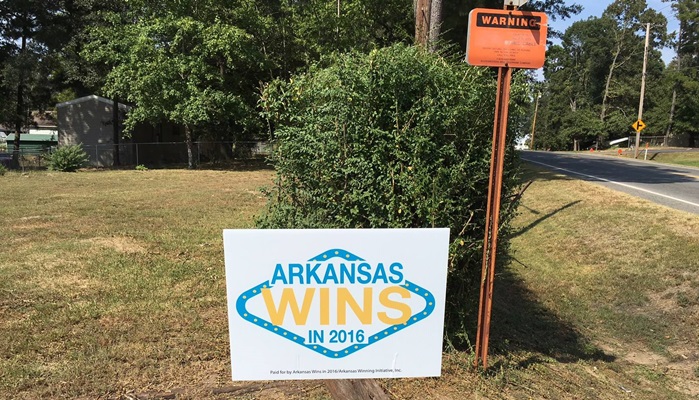Proponents of a constitutional amendment that would legalize casinos in three Arkansas communities anticipate the ballot measure’s success would mean an additional $122 million annually in tax revenue and the creation of thousands of new jobs, however, an opposition group rejects the study, calling it “propaganda,” according to the Associated Press.
An economic impact study of the proposal that would allow casinos in Washington, Boone, and Miller counties was commissioned and released on Tuesday by the group behind the referendum or Issue 5 (pdf), Arkansas Wins in 2016.
According to a social media post by the group, the study conducted by Kyle Dean, PhD and Russell Evans, PhD of Economic Impact Group, LLC, indicates that the success of Issue 5 would mean the creation of “3,200 direct operational jobs with annual wages and benefits of $134.4 million and 3,432 direct construction jobs with wages and benefits of $148.5 million and would generate $122 million in annual gaming tax revenue for the state and local communities, and capital expenditures of $600 million, with $450 million being spent within the state of Arkansas.”
Dean said, “When you account for additional local spending from support industries and households, the total annual statewide impact from the operation of the casinos is $1.2 billion, supporting nearly 8,000 jobs that pay $331 million in wages and benefits. There is no question that passage of Issue 5 would yield substantial economic benefits to the citizens of Arkansas,” according to Arkansas Wins 2016.
The study was dismissed, however, by the group opposed to the measure, Protect Arkansas Values/Stop Casinos Now, noting that the consultants have previously conducted research for a major backer of the proposal, Cherokee Nation, according to the news agency.
The numbers pro and con may not matter in the end. Although casino proponents delivered about 15,000 more supporting signatures than required, the ballot measure has been certified and will appear on the ballot, opposition groups filed suit claiming irregularities and the question of whether or not to count votes for and against the referendum now rests with the Arkansas Supreme Court.



